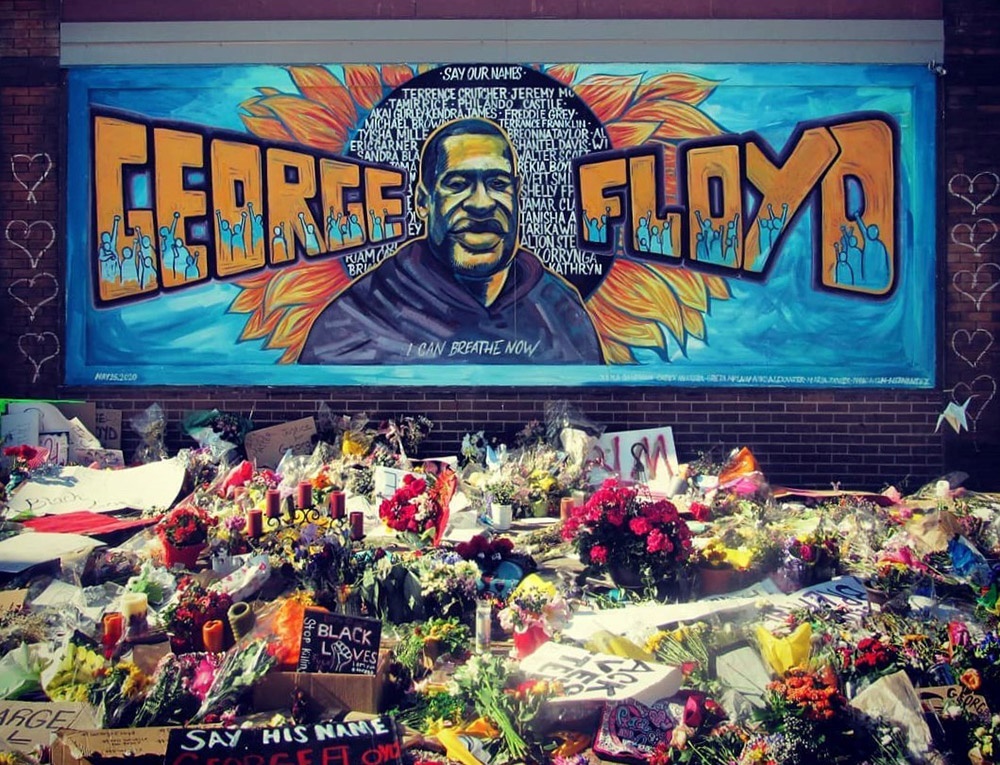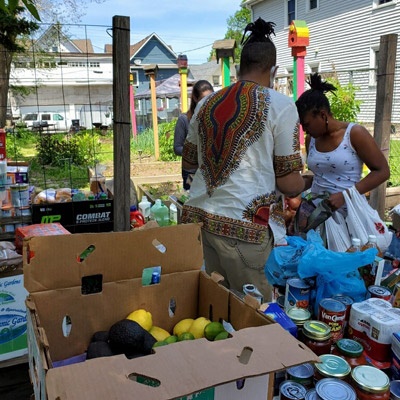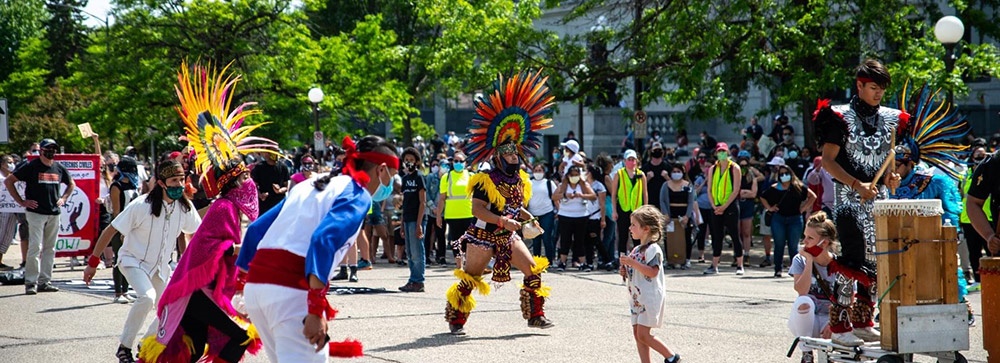In Minnesota, it seemed like a simple thing: Amanda Welliver wanted to send chalk to 200 new homeowners in the Twin Cities that her organization, NeighborWorks Home Partners, had helped with down payment assistance. The idea was for the homeowners to write encouraging messages on the walks near their new houses – a distant way of engaging during COVID-19 for NeighborWorks Week, set aside each year for neighborhood improvement activities and service.

The chalk never made it to St. Paul and overnight a more important need arose. The focus of NeighborWorks Week, a time to celebrate communities, turned to finding solutions for communities whose residents were struggling. Already having issues because of COVID, which led to an historic unemployment rate, they had issues with food and finances. They had the desire to stand up for civil and human rights.
"The huge need we're seeing in our community is our businesses have been hit hard by COVID, but now, with the unrest, virtually every grocery store, every pharmacy, every place you can obtain food or basic necessities is closed down, as is our transit system," says Jason Peterson, CEO of NeighborWorks Home Partners. "It's created a major food desert. People just can't get things."
Neighbors have been collecting what items they can and sharing them, Peterson says. He has done the same. So, for NeighborWorks Week, "we're still trying to figure it all out."

The community has shown its resilience, he says, by "standing in solidarity to denounce racism and violence in all its forms." People are saying "enough is enough with talking about the system of inherent racism and taking action." Neighbors are supporting one another.
Welliver says she plans to send a message to NeighborWorks Home Partners' customers suggesting that it's still a time to write encouraging notes on sidewalks to people in the neighborhood. Maybe even more so.
"There's a large community outpouring," she says. "People are bringing in diapers and food in overwhelming amounts. We will be helping to make fresh produce available as well."
The NeighborWorks Home Partners staff will be working at a food distribution that was organized by Lynn Thompson and Delinia Parris, who met at the NeighborWorks Community Leadership Institute a few years ago in Cincinnati. Several years ago, in response to the sudden closure of a neighborhood food shelf, they worked together to organize a weekly distribution of fresh produce at St. Stephanus Lutheran Church. But shuttered grocery stores prompted them to add several emergency distributions to help the community, Welliver says.
She says their $500 NeighborWorks Week grant, plus additional funds they'd budgeted, will go right back to the community where it's needed most. It will provide up to 30,000 pounds of produce for the neighborhood.
Meanwhile, things are changing quickly in the Twin Cities. Mass transit is scheduled to go back online. Daily protests have been peaceful, without the distraction of destructive activity that occurred in the first few nights. "The bigger issue is the fallout and the uncertainty," Peterson says. "The stores are hesitant to open up. Transit is hesitant. There's not a lot of clear guidance. It's fluid and uncertain."
But the goals remain the same as they do during other NeighborWorks Weeks and during every normal week, too, he says: To help.
Welliver agrees. As she talks, her voice is drowned out because of a National Guard helicopter flying overhead, so she pauses and waits.

"We're really wanting to support our communities and celebrate our communities being strong," she says. "It's been hard to see the grief our communities are dealing with, but it gives me hope to see how neighbors are showing up and standing together, speaking out and lending a hand when needed. It's a wake-up call that we need to know one another and watch out for one another."
Over the past week, they have seen food drives, Gofundme pages and donations to the business community, Peterson says. "I personally witnessed a substantial pop-up food distribution event occur in the parking lot of a boarded-up grocery store in which I witnessed active looting just 48 hours earlier in one the more impacted neighborhoods."
One thing that isn't scarce? Neighbors helping neighbors, Peterson says.
More information about helping NeighborWorks Home Partners is available on their website.
Editor's Note: During this nontraditional NeighborWorks Week, where we won't have our usual in-person events and activities, we are reflecting on the power of unity and resilience that our communities strive for daily. We are heartened to see that same strength and power driving calls for change and justice. We build on the legacy of giants and innovators who sought to galvanize the collective power of public-private partnerships to ensure that communities were not erased or forgotten. In 2020, as our country responds to the impacts of COVID-19 and cries out in social justice protests, we are grateful to stand with partners who are committed to ensuring housing security, community stability and consumer financial health.

